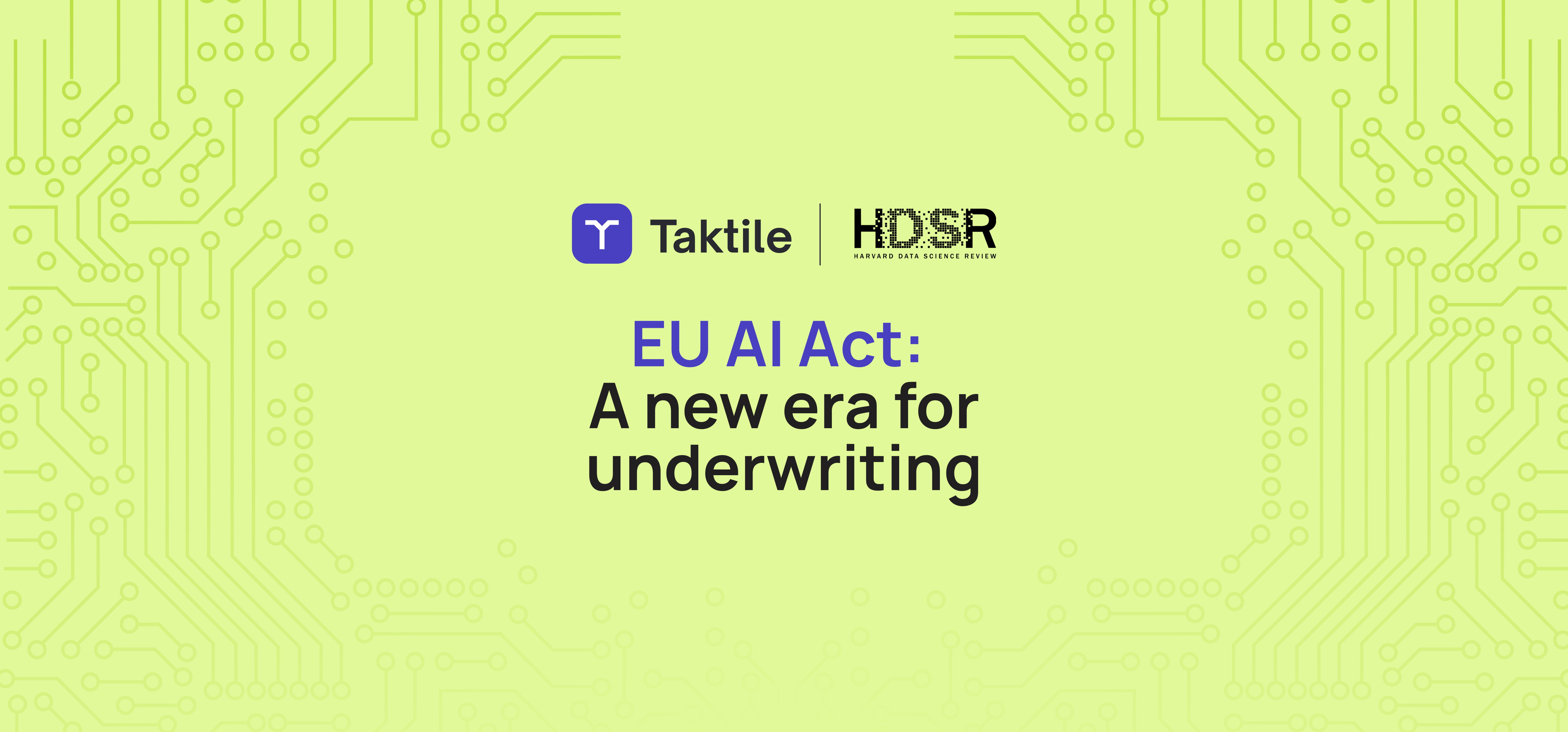AI 2 min read
The EU AI Act: What it means for credit underwriting and insurance

On July 16, 2025, the Harvard Data Science Review published an in-depth article by Philipp Hacker and Taktile Co-Founder and CPTO, Maximilian Eber, examining how the European Union’s first Artificial Intelligence Act (Regulation 2024/1689) will reshape credit underwriting and insurance risk assessment.
Their analysis highlights that while many lenders and insurers already use external credit scores, proprietary data sources, and machine learning to enhance decision-making, these systems are now on the brink of much tighter regulation. The article explores three crucial questions:
1. How will underwriting activities be classified under the AI Act?
2. What new regulations must companies prepare for once the Act takes effect?
3. How will these rules interact with existing financial regulations?
Explore the complete analysis in the Harvard Data Science Review
High-risk designation for financial services
The AI Act designates credit scoring, as well as life and health insurance underwriting, as “high-risk.” This classification requires additional oversight, stricter governance, and more comprehensive compliance measures for institutions using AI or other automated decision systems.
Beyond existing regulation
While many requirements overlap with current banking and insurance rules, the AI Act goes further. It applies not only to advanced AI and deep learning but also to more traditional machine learning models and even decision systems that aren’t typically labeled “AI.”
Transparency, oversight, and accountability
To comply, financial institutions will need robust and transparent underwriting infrastructures. This means clearer documentation, stronger data governance, human oversight mechanisms, and ongoing monitoring to ensure fairness and accuracy in decision-making.
Why this matters for risk leaders in financial services
The EU AI Act introduces a comprehensive regulatory framework that will apply broadly across technologies. For risk and product leaders, this is both a compliance challenge and a chance to differentiate through responsible AI adoption. Those who adapt early will strengthen trust with regulators and customers alike.
At Taktile, we empower financial institutions to build and run complex decisioning processes designed for compliance, iteration, and innovation, so they can meet regulatory standards without slowing down product growth.







